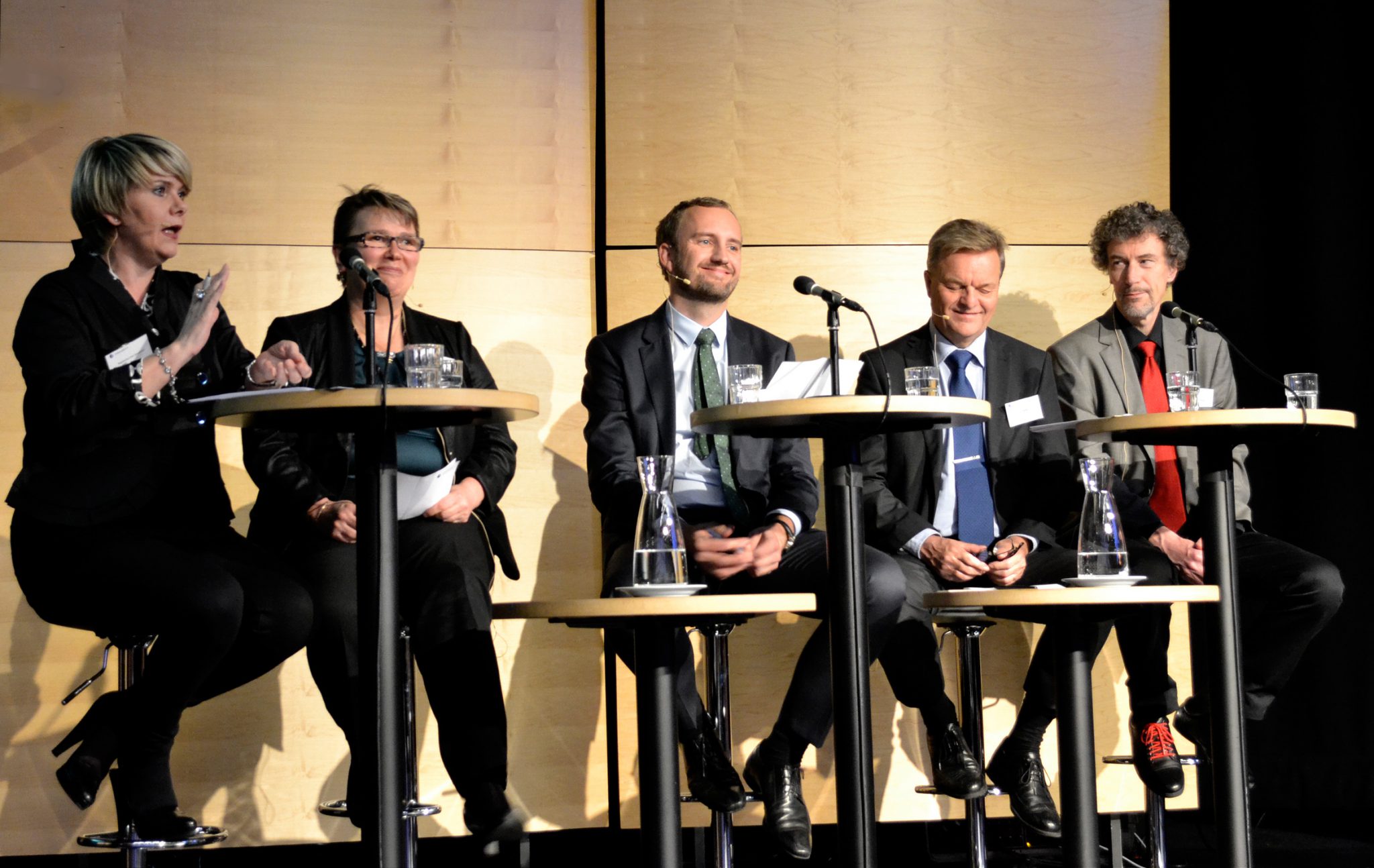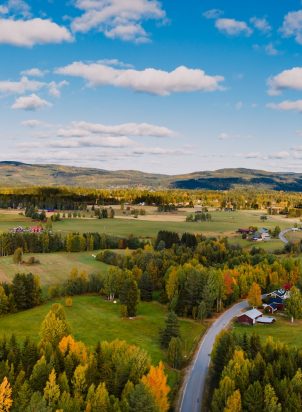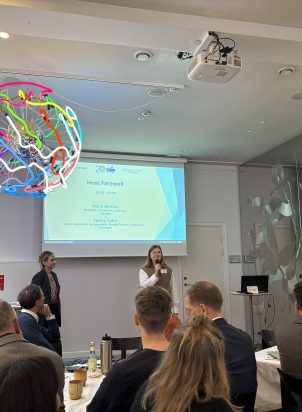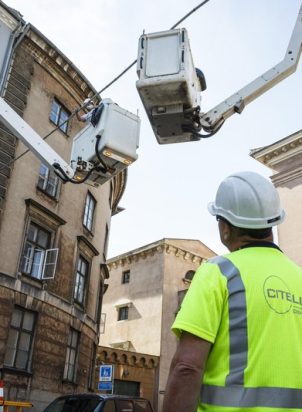The first day of Nordregio Forum was concluded with a panel debate with representatives from the five Nordic governments, chaired by Ari Kristinn Jónsson, Rector of Reykjavik University. The members of the panel were asked to answer the same three questions, before opening up for questions from the audience.

The members of the panel (left to right): Ragnheiður Elín Árnadóttir, Minister of Industry and Commerce in Iceland, Kaisu Annala, Strategic Director at the Ministry of Employment and the Economy, Finland, Christian Lützen from the Ministry of Housing, Urban and Rural Affairs, Denmark, Hallgeir Aalbu, Director General at the Ministry of Local Government and Modernisation, Norway and Sverker Lindblad, Senior Senior Adviser at the Division for Regional Growth at the Swedish Ministry of Enterprise, Energy and Communications, Sweden.
The three questions posed to the panel were:
- How are the ministries promoting the bioeconomy?
- What is the potential of bioeconomy for growth in sparsely populated areas?
- What is the potential of bioeconomy to promote Nordic cooperation for growth?
Sweden believes that the bioeconomy can sustain economic growth in rural areas, create jobs, and new business opportunities for rural entrepreneurs. In Sweden many things are happening, e.g. industrial clusters are being created to substitute fossil fuels in the production chain. The government will be giving grants to 58 companies investing in innovative solutions (600 million SEK by 2020), through the bio-innovation programme.
In Norway, the bioeconomy provides hope. Norway has been focusing on fish and fish farming, biogas and oil, and these sectors are gradually becoming high-tech and part of the global economy. Sea resources are the most important for Norway. They are also important for the Arctic region, and this provides hope for the future.
The initiatives in Norway include a national strategy for biotechnology, Horizon 2020 projects, and a biorefinery programme from Innovation Norway to provide support to biorefineries. A bridge between politics and business sector is important.
The Danish government wants the energy supply to be based on green, fossil-free fuels by 2050. The development of this sector will have a positive effect on job creation in rural areas and the development of the society, as well as reduce climate impact. Local entrepreneurs feel that there is a lack of knowledge – “We need cooperation, knowledge sharing between public and private partners, urban and rural areas, between sectors, and between regions.”, Christian Lützen stated.
Finland has a new industrial policy focusing on cleantech, bioeconomy and digitalisation. Changes in public funding have been made, now directed towards these three fields. The target for cleantech is to grow from 25 billion EUR to 50 billion EUR in 2050, which would create 40 000 jobs. The goal for the bioeconomy is to create 100 000 new jobs by 2025. Actions include promoting exports, investments, and demonstration plants. There is also a lot of potential in the forestry sector.
For Iceland, bioeconomy is about developing the “old” into something “new” – a better utilisation of old resources. This needs to be a public-private partnership and the government’s role is to provide the framework to support innovation and research. Key issues are to develop value instead of quantity. With increased innovation, one can increase the value of natural resources (e.g. making band-aid from fish skin).
Potentials of Nordic cooperation
The panellists all had a positive view of Nordic cooperation in bioeconomy. Many mentioned providing inspiration, exchanging experiences, both good and bad. Working together should be based on exchanging views and ideas and finding ways to cooperate. “That is also the benefit with conferences as this one.”, Ragnheiður Elín Árnadóttir stated, referring to Nordregio Forum.
The Nordic countries could benefit from a common policy framework, pooling resources through research and taking the lead in bioeconomy initiatives. “We are privileged in the Nordic countries and have comparative advantages in bioeconomy, forest, agriculture and marine resources to name a few.” Sverker Lindblad said. A Nordic bioeconomy panel can be a starting point to develop the bioeconomy in Nordic countries.



